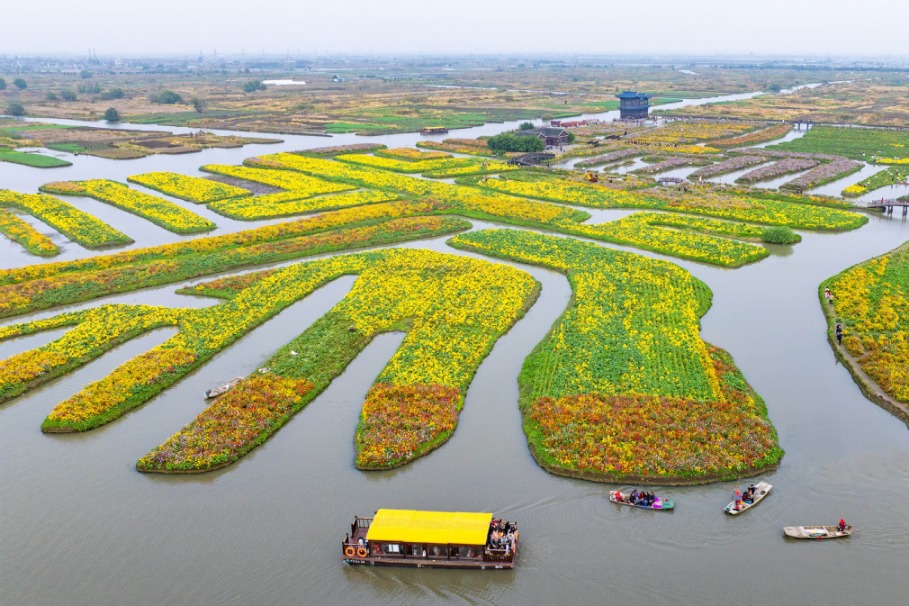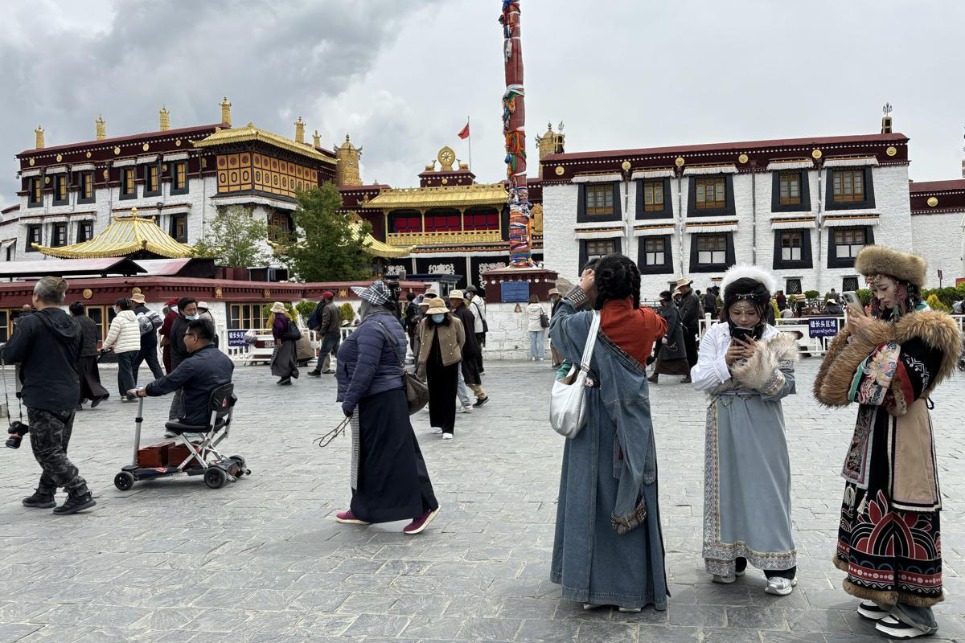'Tech tourism' takes off across nation

NANJING — By donning virtual reality goggles, visitors are instantly "transported" back to the Qin Dynasty's (221-206 BC) underground mausoleum, where the silent Terracotta Warriors seem to come to life before their eyes.
And in a Mars-themed base, children clad in simulated astronaut suits step into a mock Mars capsule, to embark on a thrilling "space mission".
These are not scenes from a sci-fi movie, but real-life "tech tourism "experiences unfolding at scenic spots across China.
The continuous evolution of technologies like artificial intelligence and virtual reality is spawning a wealth of new cultural and tourism experiences that are perceptible, interactive and expansive.
From light shows and drone displays to VR experiences and interactions with robots, tech-driven scenes crafted by scenic spots and cultural venues are becoming must-visit check-in points for tourists to "touch the future".
An industry report has predicted that China's smart tourism market will surpass 1.4 trillion yuan ($197.6 billion) by 2025.
Science museums and popular science venues have also become top choices for family trips. At the Shenzhen Science and Technology Museum in South China, an exhibition exploring the universe allows youngsters to "roam" in space, while the Qingdao Science and Technology Museum in East China invites children to put on VR goggles — thereby becoming "underwater archaeologists".
More immersive science tourism destinations are also gaining traction. The FAST telescope, the world's largest single-dish and most sensitive radio telescope, located in Southwest China's Guizhou province, offers a unique blend of technology and natural beauty. Also, the rocket viewing platform in Wenchang, South China's Hainan province, attracts more than 100,000 spectators for each launch.
"I specifically took my son to see a rocket launch this summer. He's fascinated by aerospace and even talks about traveling to space in the future," said Wang Xin, a parent from East China's Jiangsu province.
According to data from online travel platform Ctrip, high-tech and heavy industry study tours emerged as a dark horse during this year's National Day holidays — with aerospace and automotive industrial tours accounting for over 20 percent of related searches.
"The integration of technology and cultural tourism transforms abstract technological concepts into tangible cultural symbols, allowing visitors to broaden their horizons and enjoy themselves subtly," said Li Guangchun, an industrial economy researcher at Yangzhou University.
"Modern tourists increasingly seek high emotional value and experiential consumption. Highly interactive tech scenes are becoming a new essential for tourism development, with many projects precisely catering to Gen Z's preference for social check-ins and their growing appetite for immersive cultural experiences," said Wu Guoping, head of the tourism industrial association of Wuxi, a city in Jiangsu.
For the youth, "tech tourism "serves as a bridge connecting knowledge and interest.
"Interactive activities launched by many science museums make complex technology accessible and tangible, which is particularly effective in igniting teenagers' passion for science," said Guo Zhe, curator at the China Science and Technology Museum.
"Travel used to be about hurried sightseeing. Now, the needs of tourists are taken more seriously, and travel has shifted from passive acceptance to active participation," said Li Ranran, a tourist from Nanjing.
Experts noted that "tech tourism "is evolving from a niche exploration to a mass consumption trend, becoming a significant engine for activating the cultural tourism market and boosting consumption. For example, industrial tourism accounts for an average of 10 to 15 percent of the global total tourism revenue, while in China, it's currently less than 5 percent, indicating vast growth potential.
"When technology ceases to be just a supporting tool and becomes the core engine driving changes in cultural tourism, a new blue ocean for the industry, characterized by innovation, will undoubtedly emerge beyond the traditional landscape of mountains and rivers," Li said.
Xinhua
- 'Tech tourism' takes off across nation
- Yunnan boy seen in viral video traced, is unharmed
- Shanghai's transport hub taking shape
- New measures seek to reduce school stress
- Xi urges comprehensively deepening reform, opening-up for high-quality development during Guangdong inspection tour
- PLA Air Force marks 76th anniversary with more advanced, intelligent equipment





































